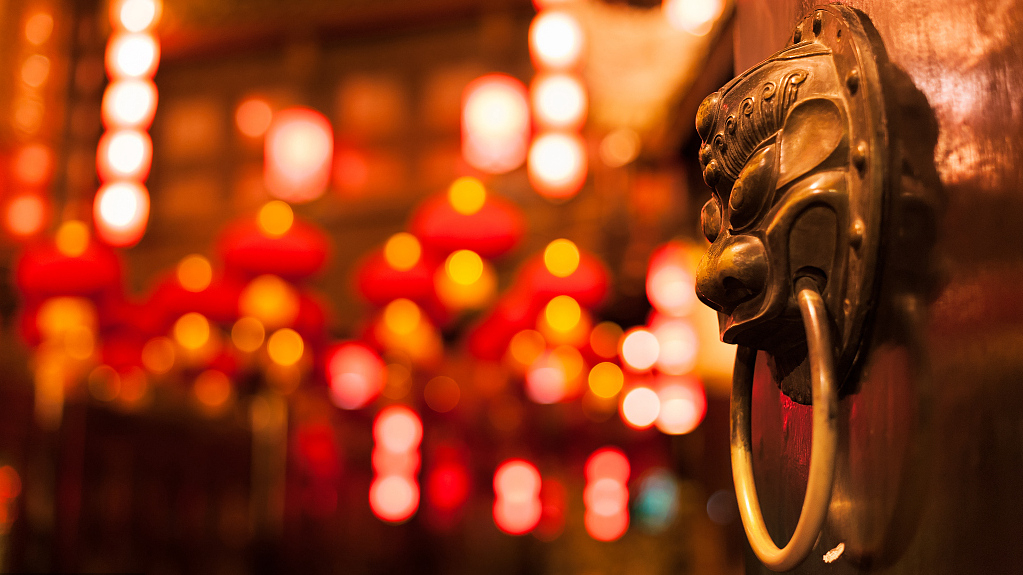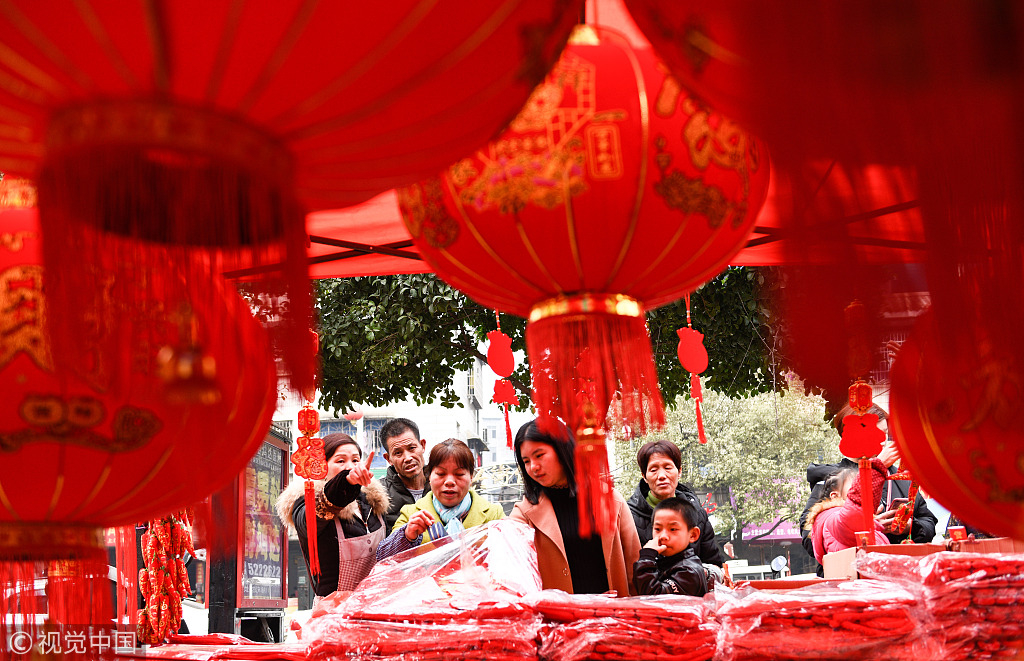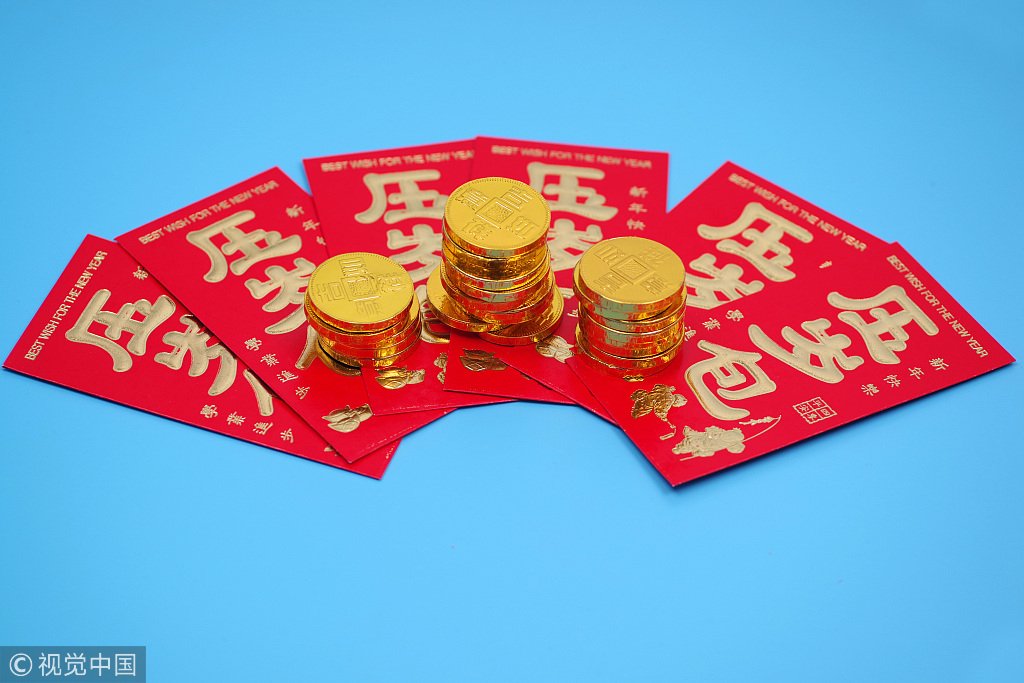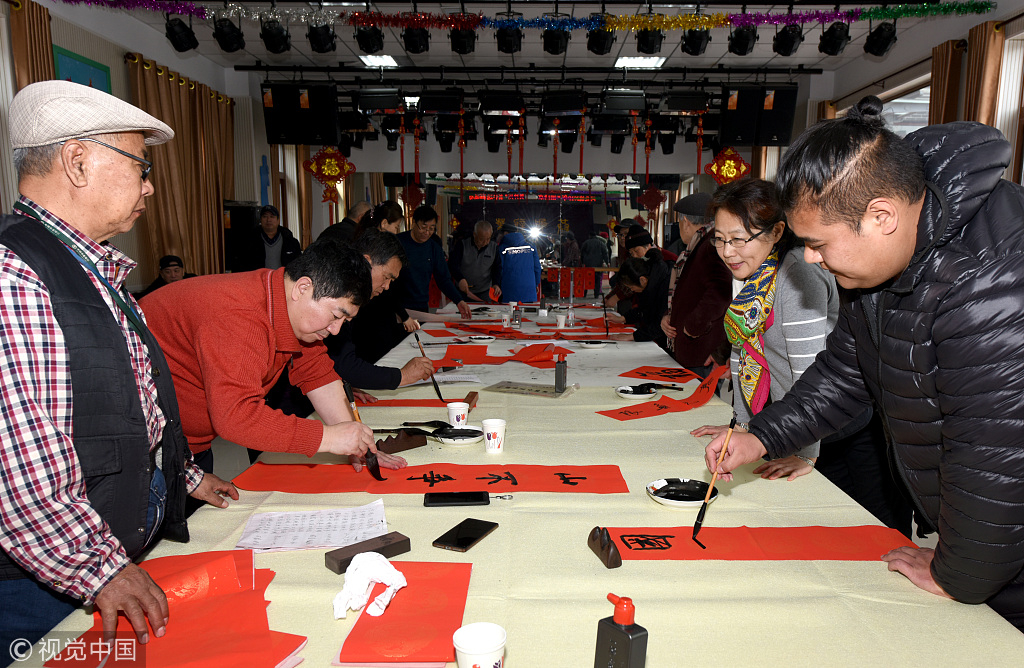
Opinion
08:42, 02-Feb-2019
Is the 'aura' of the Spring Festival fading?
Aaron Zou

Editor's note: Aaron Zou is a PhD student based in California, specializing in media and cultural studies. The article reflects the author's view and not necessarily those of CGTN.
"Are you coming home for the Spring Festival?" This is the question you get during this time of the year. It is also during this time that coming home takes on a special ritual meaning that goes beyond the mere act of physical transportation and returns.
A short video titled What's Peppa Pig that went viral on social media lately artfully exploited this seasonal theme of coming home. It is a promotional video for a film featuring the British cartoon character Peppa Pig and attracted tens of millions of views within 24 hours of its release.
The popularity of this video speaks to the rich yet changing social meanings that people associate with the Spring Festival and with a family reunion and reveals how such meanings are constantly re-constructed within a changing sociotechnical context and between different generations.

People are shopping for Spring Festival decorations in Yongzhou City, China's Hunan Province, January 28, 2019. /VCG Photo
People are shopping for Spring Festival decorations in Yongzhou City, China's Hunan Province, January 28, 2019. /VCG Photo
The video tells the story of a lonely grandpa living in a rural town, who desperately managed to figure out and eventually made the gift that his grandson asked for, a Peppa Pig toy.
He made it in his own way, with his own understanding and the limited raw materials available to him - metal and paint. The ingenious plot moved many viewers because it signifies an attempt to close the many gaps that existed in a transitioning and developing society, such as the differences between urban and rural experiences, between the younger and the older generations.
It harks back to the old debate on whether the atmosphere of the Spring Festival (nian wei) is fading away as people move toward urbanized and modernized lifestyles. Are more young people working in large cities unable or reluctant to come home? If so, how does that change the ways we see and celebrate the Festival? Do the meanings of the Festival change?
The Aura of Spring Festival
The term Spring Festival comes with a magic aura to me; it is a signifier of nostalgia. It triggers childhood memories where my large extended family had reunion dinner at my grandma's house, where I got to taste a variety of homemade food that was otherwise inaccessible.
It was an occasion for kids to get new clothes, and to receive red packets in a material and tangible form - only to grudgingly hand them over to their parents. It was a time relax and connect, not only with family and friends but also with the broader community and with tradition.

Spring Festival lucky money. /VCG Photo
Spring Festival lucky money. /VCG Photo
What makes the Spring Festival festive is the communal experience that you partake in - the long anticipation of the big day, and the great preparation made just for that special occasion. The experience of coming home for a holiday is not a solitary experience, but a communal one.
It is the busiest time of the year for the country's transportation system that accommodates massive numbers of passengers. Watching CCTV's Spring Festival Gala is also a communal experience that fulfills a ritual function, binding the social body together strengthening people's ties with the community, and offering them a sense of identity, belongingness and rootedness.
The aura of the Spring Festival comes from its embeddedness in traditions, memories and communities. It is realized in family reunions, nor nuclear families, but extended ones. It offers an opportunity for intergenerational gathering and communication. The massive traffic of transportation---routes that crisscross the vast territory of the country--bridges the rural and urban spaces and experiences geographically, materially and symbolically.
Changing society, changing lifestyle
But as many argue, things change. The elevated standard of living makes it possible for kids to get new clothes anytime at will, and for families to have reunion banquets in fancy restaurants. The digitization of social life makes it possible to exchange red packets with the convenience of their mobile phones.
Those traditional practices associated with the Spring Festival are increasingly decoupled with the ritual forms and spaces to which they used to be confined. Virtual communication seems to displace more face-to-face interactions.
As people mature, their life and mentality change, too. In the postindustrial era, labor forces become more flexible, fluid and mobile, and work an accelerated and ceaseless process. There emerge more possibilities for career and life choices, in terms of where to work, how to live and how to invent one's own narrative of the self.

Chinese calligraphers make Spring Festival couplets, a type of traditional decorations for the festival, in Beijing, January 29, 2019. /VCG Photo
Chinese calligraphers make Spring Festival couplets, a type of traditional decorations for the festival, in Beijing, January 29, 2019. /VCG Photo
With such flexibility and individualized choices comes increasing pressure as well, the pressure to stay afloat, to get married and have children, and own a home. The modernized lifestyles and the mounting pressure make some young people reluctant to come home for the Spring Festival, an occasion where they often confront the cumbersome expectations from their parents and relatives about their jobs, their relationship statuses and other intimate aspects of their life. To come home or not, therefore, becomes a question.
Repose and Re-connecting
Despite all these changes, many things remain unchanged, such as the love and care between parents and children, which after all prevail over the differences between them. The spirit of the Spring Festival, the reunion and the communal gathering, does not change and could be relived in modernized ways.
In fact, the accelerated and potentially pressure-producing modern lifestyle makes it even more necessary for people to take a break from work and come home. The Spring Festival provides an ideal opportunity for that repose and an occasion for re-connecting and communicating face-to-face with your families about your anxieties and issues. To communicate well, both the older and the younger generation should hear each other out. They need to understand and respect each other's expectations and choices to really re-connect.
Is the aura of the Spring Festival fading away? No, but you need to take a break from your busy life in order to feel it. You need to re-connect with your lost senses, with friends and family and with the community that you come from. Reconnecting at that deeper level is the true meaning of family reunion for the Spring Festival.
(If you want to contribute and have specific expertise, please contact us at opinions@cgtn.com.)

SITEMAP
Copyright © 2018 CGTN. Beijing ICP prepared NO.16065310-3
Copyright © 2018 CGTN. Beijing ICP prepared NO.16065310-3